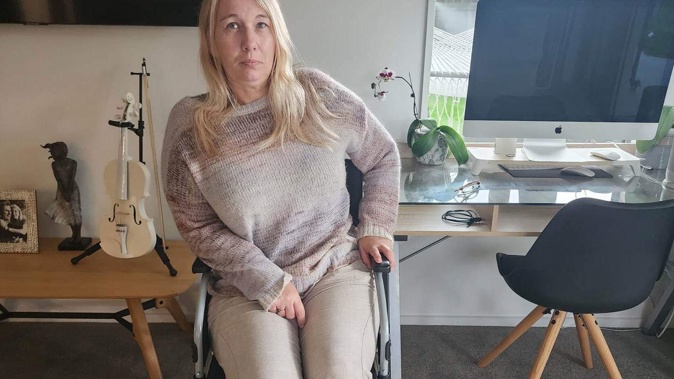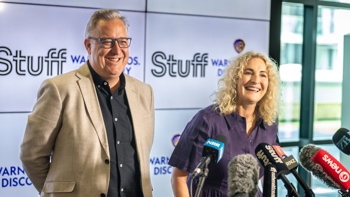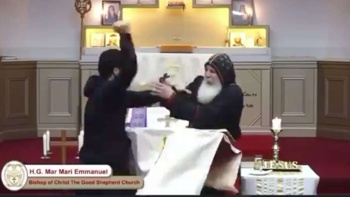
When Blenheim midwife Nicky Rasmussen had a “stupid” fall from her deck three years ago she never imagined it would leave her in constant pain, bedridden and pondering whether her life was even worth living most days.
She also never imagined she would be tangled in a three-year battle with ACC which she feels is more intent on “disproving” her injury than helping her.
And yet, here she is - the once lively 46-year-old now mostly confined to her bed or a wheelchair and living in painful misery 24/7.
On April 17 2020 Rasmussen tripped and fell from her deck, landing on a railway sleeper in the garden and hurting her hip and left buttock area.
/cloudfront-ap-southeast-2.images.arcpublishing.com/nzme/F6R5FOXJJRG5ZMONA7Z3SGU3NM.jpeg)
Nicky Rasmussen worked as a midwife and had an active lifestyle until her injury in 2020.
She was in a lot of pain but did not think the injury was severe enough for immediate medical help - and given the pressure on the health system due to the pandemic, she decided to “tough it out”.
But within a couple of days she knew something was seriously wrong - she could not urinate and the pain was increasing.
Rasmussen went to the doctor and while X-rays and MRIs showed no significant damage, her ACC claim was accepted.
In June she was certified as “fully unfit” to work due to lower back pain and referred to a urologist for her ongoing symptoms.
The urologist diagnosed Rasmussen with a dermatome injury - where a nerve root in the spine is compressed or pinched - and “a degree of cauda equina” which occurs when the nerve roots in the lumbar spine are compressed, cutting off sensation and movement.
He applied for surgical funding for a procedure to investigate the symptoms she was suffering after the fall.
Over the next few months Rasmussen was in and out of the emergency department in severe pain.
She was also assessed by a number of specialists - some who agreed with the diagnosis of cauda equina and others who did not believe the condition was present.
In October 2020 ACC approved a pain management programme to provide Rasmussen with “multidisciplinary support including physiotherapy, medication review, psychology, occupational therapy and services of a pain specialist”.
Then in November ACC declined the urologist’s application for surgery on the basis the cause of her pain “was an unrelated health condition”.
A month later ACC’s medical adviser recommended the agency fund “urodynamic studies, an examination with a rheumatologist, management of pain with the pain physician and ongoing physical therapy”.
/cloudfront-ap-southeast-2.images.arcpublishing.com/nzme/JX567B6PR5AJ7IHYBDEFIZV22Y.jpeg)
Rasmussen before her debilitating injury.
Over the next few months Rasmussen saw a number of other specialists:
- A neurological physiotherapist concluded she had cauda equina and in April her GP formally requested ACC cover for the condition.
- A second urologist said Rasmussen’s symptoms “fit well with a picture of cauda equina”.
- A specialist pain medicine physician said “findings do suggest she likely had had cauda equina syndrome, and therefore the possibilities are that this cauda equina compression took place over a short period of time and was not identified on the MRI scans”.
In June 2021 Rasmussen applied for a review of ACC’s decision - the aim of which was to establish whether the call to decline cover and surgical funding was correct.
The head of the review said there was conflicting evidence about Rasmussen’s condition from a number of experts and further investigation was needed to determine what was going on and how to treat her.
They quashed ACC’s decision declining funding for the dermatome injury or cauda equina and directed the agency to undertake further analysis and seek further advice and remake their decision.
Almost a year on, Rasmussen is still in severe pain, still waiting for answers and a shell of the woman she used to be.
“It’s highly depressing … absolutely devastating,” she told the Herald.
“I feel like this whole three-year journey has been more them trying to disprove me than help me.
“I’ve got multiple people saying I have this condition and they are trying to refute it … it’s heartbreaking.
“They have basically fought to disprove my diagnosis.
“I am in crippling pain, I wish I wasn’t … I just wish they would listen.”
Rasmussen cannot sit upright, stand or walk unassisted and said her whole life had “unravelled”.
“I used to ride a motorbike, deliver babies, drive a bus … I used to be so energetic and a really outgoing person.
/cloudfront-ap-southeast-2.images.arcpublishing.com/nzme/MF6SBYI54BGZXHHXGV3Y3SZ3I4.jpeg)
Nicky Rasmussen can no longer do all the things she is passionate about.
“Now it’s an achievement if I can even make it out into the kitchen to eat tea with my family, let alone cook it … I’ve become so dependent, I’ve just become a different person.
“All of my great passions have been taken away from me in one way or another.”
She wanted answers so she could finally get the help she needed.
She felt that ACC “don’t care” about her and said she was angry and frustrated at the time it was taking to get any resolution - especially after the review.
“I need help, I need to be taken seriously … They forget I am a person, and I feel like they’ve taken away my dignity.”
ACC deputy chief executive of service delivery Amanda Malu confirmed that the reassessment of Rasmussen’s injury was ongoing.
“Since the review decision, ACC has sought advice from two clinical experts, a urologist and neurologist to determine the cause of Nicola’s symptoms,” she told the Herald.
“They have not been able to confirm there is a physical injury requiring surgery and have indicated the cause of her symptoms may instead be neurological.
“We are now seeking an opinion from a neuropsychiatrist.”
Rasmussen has an appointment in April with that specialist.
“Once we can confirm Nicola’s diagnosis, we will consider any requests for further entitlements including surgical funding to ensure she is receiving the right treatment,” said Malu.
She said while the assessment was ongoing Rasmussen had “deemed cover” for cauda equina.
“Deemed cover means that we can continue to provide entitlements to Nicola, such as psychological support, while we explore a firm diagnosis,” she explained.
“Nicola has symptoms consistent with cauda equina syndrome but physical evidence of this condition has not been reflected in high-tech imaging or other specialist reports. We are seeking further advice on a diagnosis and treatment options from a neuropsychiatrist, this assessment is booked for April.”
/cloudfront-ap-southeast-2.images.arcpublishing.com/nzme/LTPOBQDJFJDT3K6BZCHDJ24TYU.jpg)
Rasmussen cannot walk unassisted and had to have a walking stick at her wedding to husband Anthony.
Malu said ACC acknowledged " the impact Nicola’s injury has had on her wellbeing”.
“We recognise that it has taken some time to action the decision issued at review,” she added.
“The decision was wide-ranging and asked ACC to look into a number of different aspects of Nicola’s claim. These have relied on external clinical advice and opinions which have all taken some time.
“While this is underway, we have continued to support Nicola with weekly compensation, home help and psychological support.”
Rasmussen spoke to the Herald because she was at her wit’s end and worried there were other people struggling with the system.
She has engaged advocate Fiona Radford to help navigate the process and said without her she would have given up - the delays and jargon were simply too much.
“I am a really private person so speaking out like this makes me anxious … but when I think of the poor people out there who don’t have family or support and they are going through this … it’s no way to live,” she said.
Rasmussen said since the injury she has struggled with dark thoughts and often considered her life to be pointless.
“On the darkest days, I think about how I lost everything … I loved my job so much, everything about my life was physical … My last child has just turned 18 and I feel like I have missed out on these last three years,” she said.
“I’ve thought about taking my life many times, just so I would stop being a burden on people.
“I feel like there’s no point in me being in this world, and if this is what the rest of my life is going to look like, I don’t know how I am going to cope with that.
“I’ve lost myself, I don’t know who I am anymore… It seems like I am two different people because when I look back to how I was, she is a stranger to me now.”
DO YOU NEED HELP?
If it is an emergency and you or someone else is at risk, call 111.
For counselling and support:
- Lifeline: Call 0800 543 354 or text 4357 (HELP)
- Suicide Crisis Helpline: Call 0508 828 865 (0508 TAUTOKO)
- Need to talk? Call or text 1737
- Depression helpline: Call 0800 111 757 or text 4202
All services are free and available 24/7 unless otherwise specified.
For more information and support, talk to your local doctor, hauora, community mental health team, or counselling service. The Mental Health Foundation has more helplines and service contacts on its website.
Take your Radio, Podcasts and Music with you









